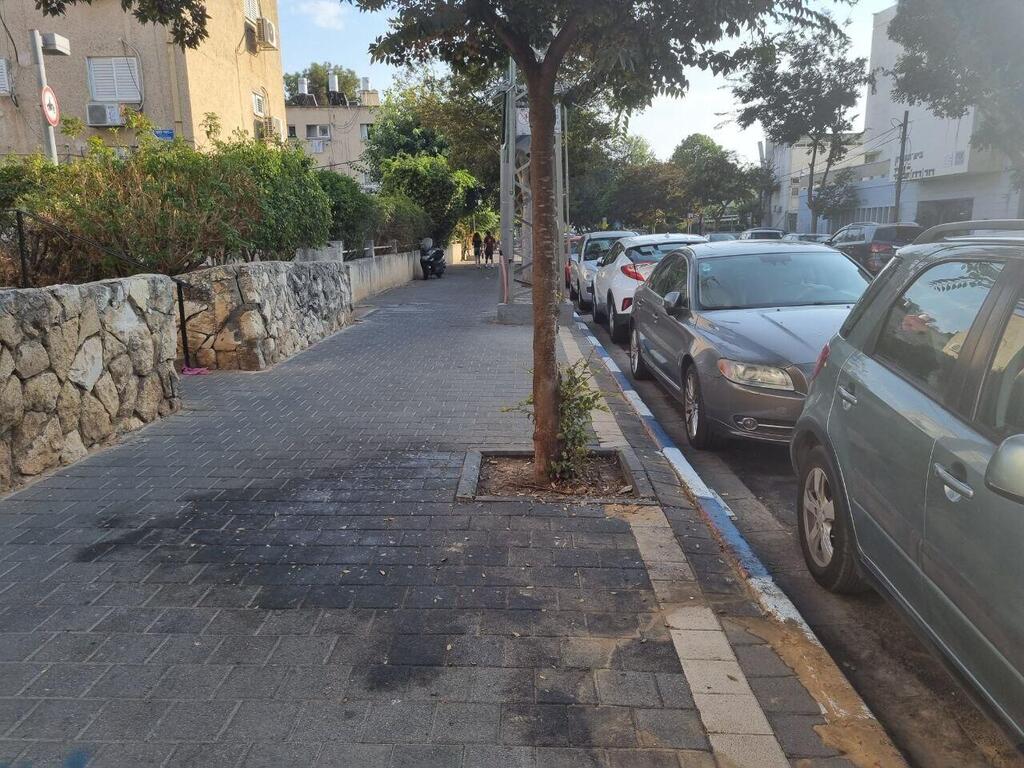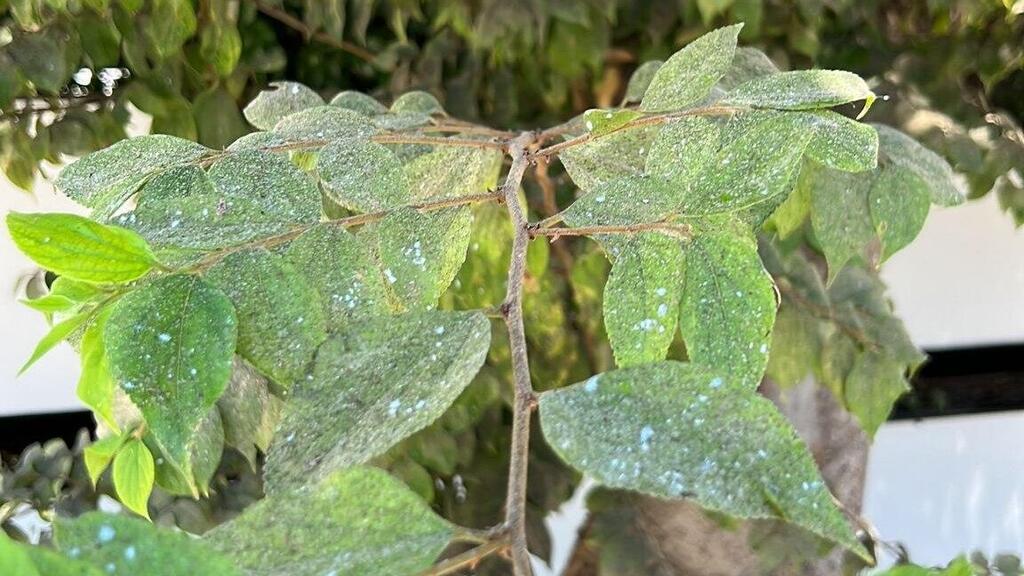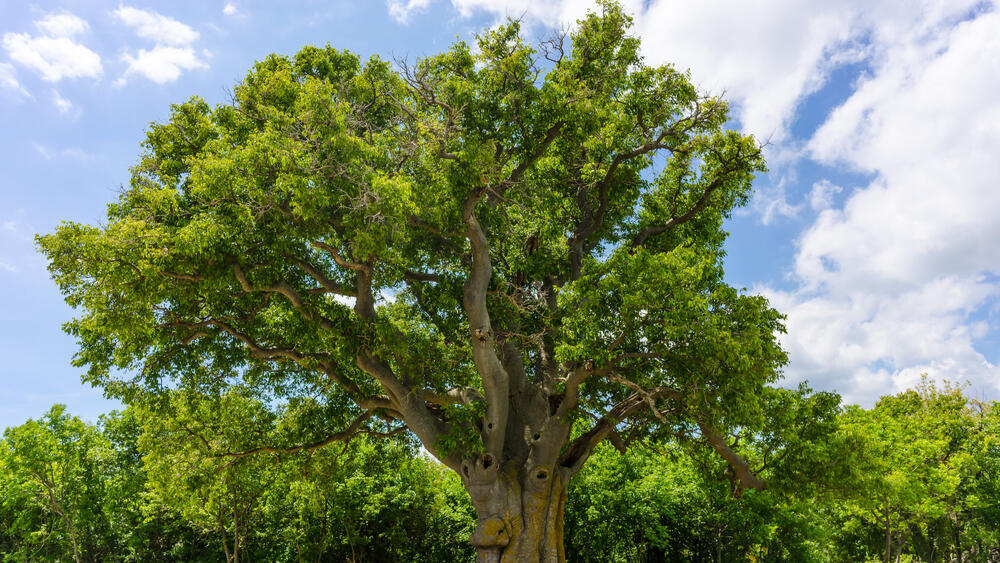A new species of nettle aphid has been spotted in Israel in recent months, which is causing a nuisance by secreting a sticky substance onto sidewalks and cars and causing some peoples' shoes to stick to the ground.
The new species, called the woolly nettle aphid, feeds off of nettle trees, which are common throughout cities in Israel.
Many municipalities are currently looking into controlling the population of the invasive species, and the Tel Aviv municipality and the Agriculture Ministry have recently concluded a new experiment using the pesticide Actara against the bugs.
The Tel Aviv Municipality now awaits final confirmation from the Agriculture Ministry to use the substance following positive test results.
The Tel Aviv Municipality also said that the decision to use the substance in the coastal city is “done with reservation since the substance has to be used 8 kilometers away from the shoreline.” This condition was placed due to fear of contaminating the seawater.
3 View gallery


A Tel Aviv sidewalk covered in sticky goo produced by woolly nettle aphid
(Photo: Saar Haas)
“It’s important to note that the number of trees infected across Israel number in the hundreds of thousands, and that we are cooperating with the Agriculture Ministry and hoping to receive a confirmation to use the substance in the coming days,” the municipality said.
In a Facebook, the Tel Aviv Municipality confirmed the insecticide does not harm the nettle trees.
A letter sent by the Agriculture Ministry in October to municipalities approved the use of the insecticide until May 31, 2023. “The woolly nettle aphid was first located in Israel in June 2022 in Hadera. A request from the Tel Aviv Municipality was sent at around the same time, asking for assistance in dealing with the new species which were found to have spread to many trees in the city.”
The letter also read: “Most of the damage by the aphid is made due to the bugs releasing large amounts of honeydew, which covers the tree and everything beneath it, including sidewalks, parking cars, etc.”
According to the letter: “The Tel Aviv Municipality has used Actara where three different dosages were administered to trees in different sizes. When the new type of aphid was found, the municipality and the Plant Protection and Inspection Services planned and executed two experiments including four different insecticides to examine which one of them worked best.
A short time following the beginning of the experiments, the Plant Protection and Inspection Services took over inspection of test results. The final results are still unclear regarding the efficacy of the insecticides. However, following an observation made by the Tel Aviv Municipality following the experiment, adult trees which received 100cc more insecticide and saplings which received 50cc more insecticide were found to have no aphids.”



